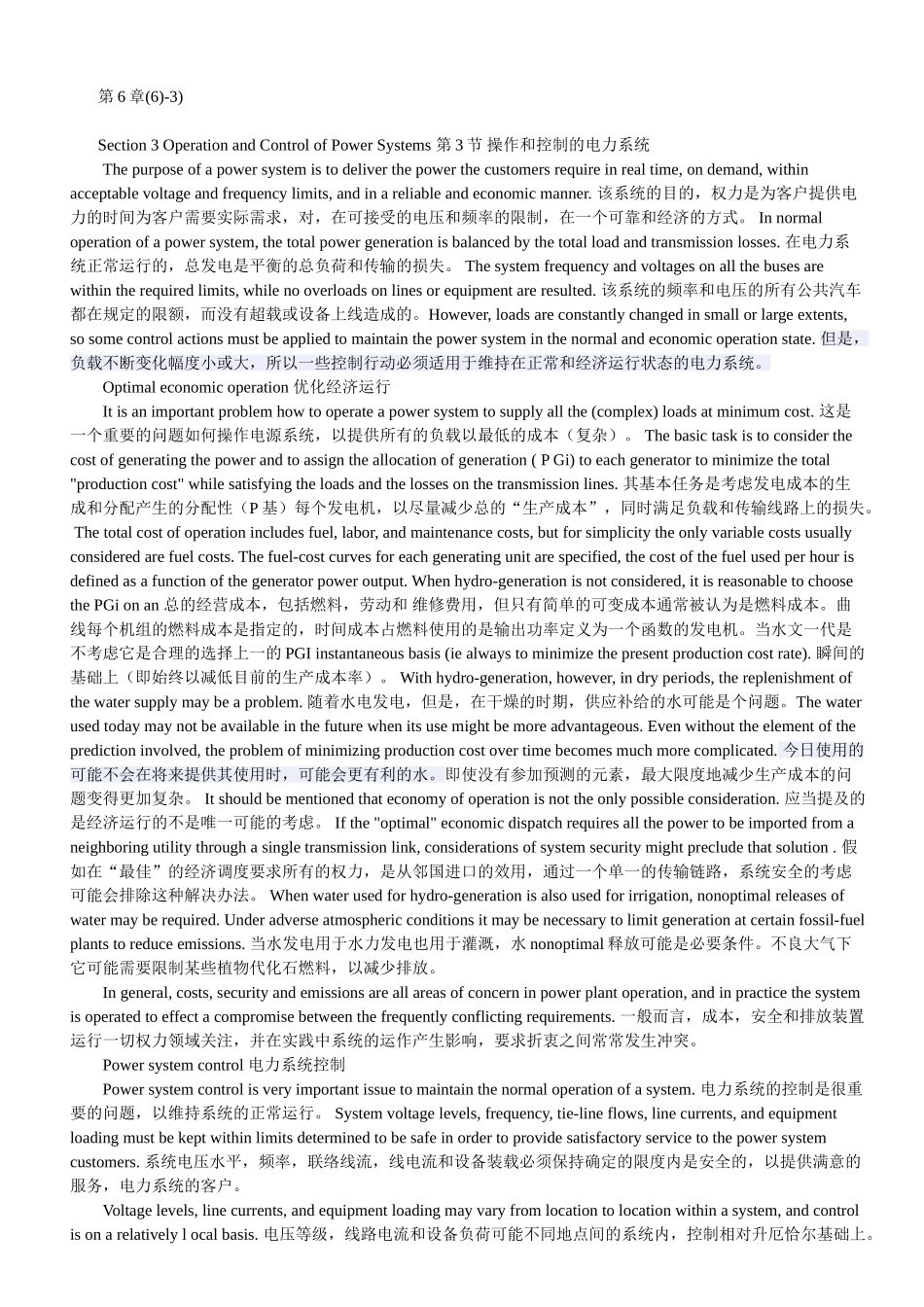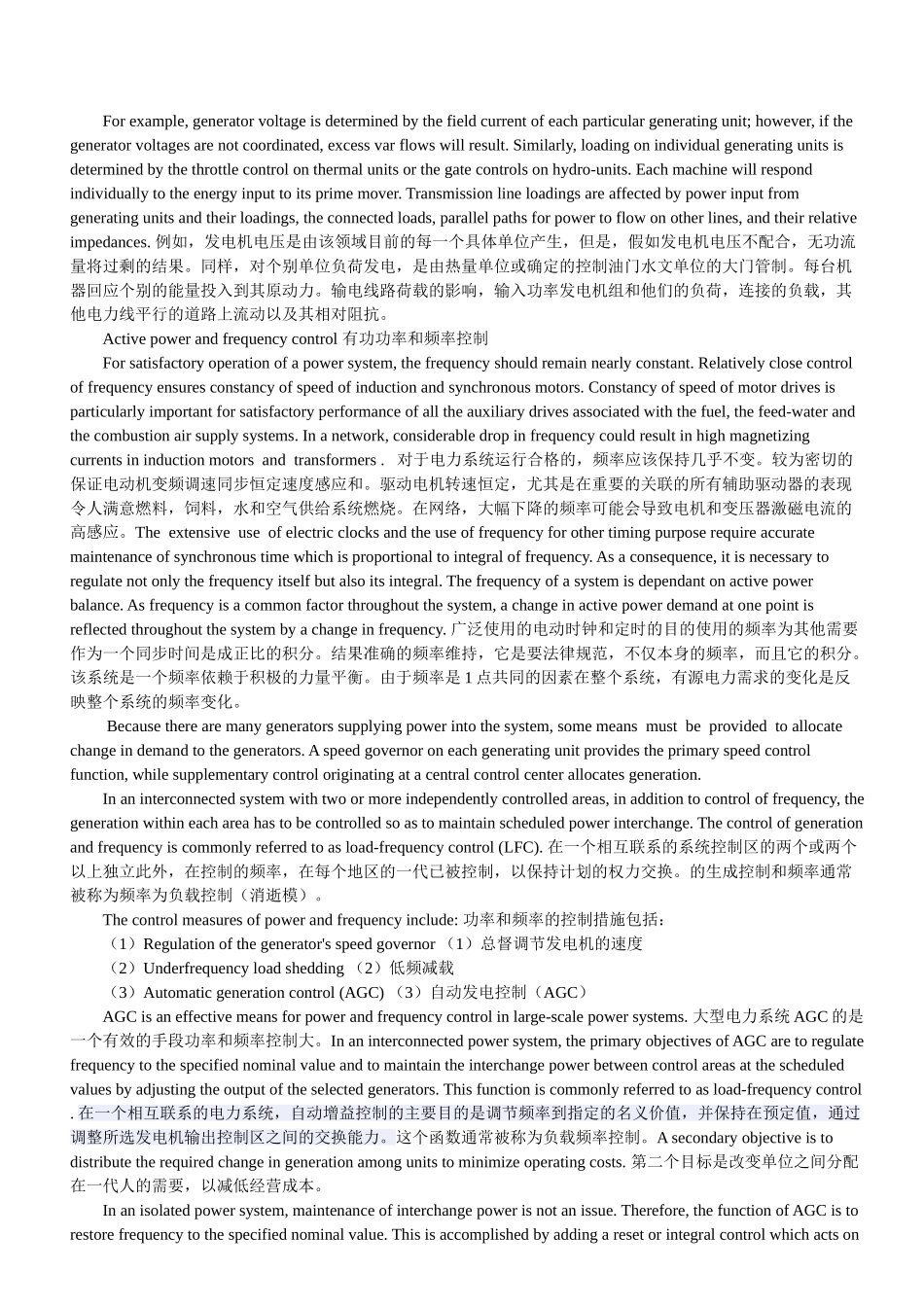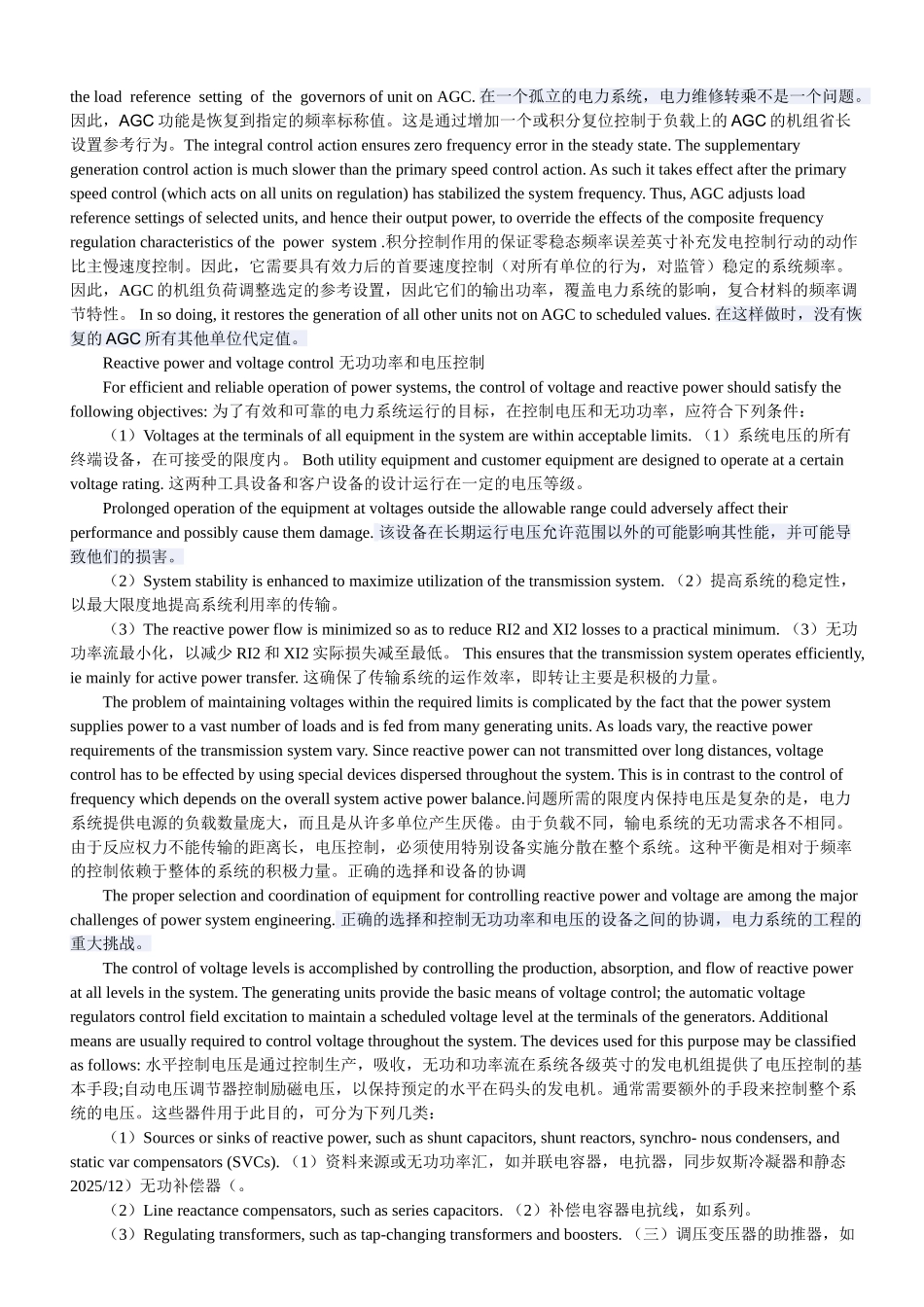第 6 章(6)-3)Section 3 Operation and Control of Power Systems 第 3 节 操作和控制的电力系统 The purpose of a power system is to deliver the power the customers require in real time, on demand, within acceptable voltage and frequency limits, and in a reliable and economic manner. 该系统的目的,权力是为客户提供电力的时间为客户需要实际需求,对,在可接受的电压和频率的限制,在一个可靠和经济的方式。 In normal operation of a power system, the total power generation is balanced by the total load and transmission losses. 在电力系统正常运行的,总发电是平衡的总负荷和传输的损失。 The system frequency and voltages on all the buses are within the required limits, while no overloads on lines or equipment are resulted. 该系统的频率和电压的所有公共汽车都在规定的限额,而没有超载或设备上线造成的。However, loads are constantly changed in small or large extents, so some control actions must be applied to maintain the power system in the normal and economic operation state. 但是,负载不断变化幅度小或大,所以一些控制行动必须适用于维持在正常和经济运行状态的电力系统。Optimal economic operation 优化经济运行 It is an important problem how to operate a power system to supply all the (complex) loads at minimum cost. 这是一个重要的问题如何操作电源系统,以提供所有的负载以最低的成本(复杂)。 The basic task is to consider the cost of generating the power and to assign the allocation of generation ( P Gi) to each generator to minimize the total "production cost" while satisfying the loads and the losses on the transmission lines. 其基本任务是考虑发电成本的生成和分配产生的分配性(P 基)每个发电机,以尽量减少总的“生产成本”,同时满足负载和传输线路上的损失。 The total cost of operation includes fuel, labor, and maintenance costs, but for simplicity the only variable costs usually considered ar...


